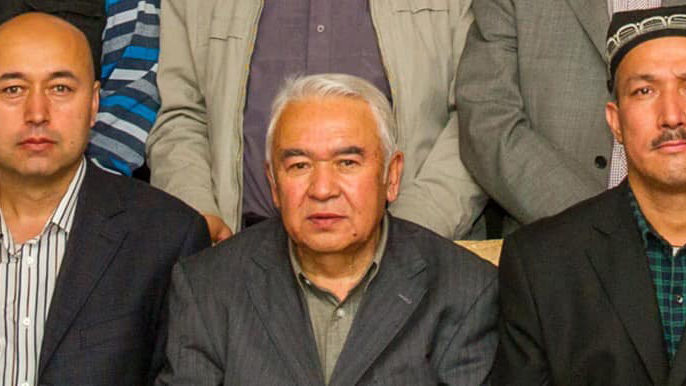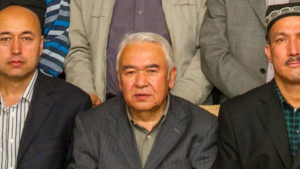WUC Deeply Saddened by Death of Prominent Uyghur Writer

Press Release – For immediate release
19 June 2019
Contact: World Uyghur Congress www.uyghurcongress.org
+49 (0) 89 5432 1999 or [email protected]
 The WUC is deeply saddened by the death of Nurmuhemmet Tohti, a prominent Uyghur writer, who reportedly died shortly after detention in an internment camp in East Turkistan. He was detained from November 2018 to March of this year and was said to have been deprived of medical treatment for diabetes and heart disease, which led to his death at 70 years old.
The WUC is deeply saddened by the death of Nurmuhemmet Tohti, a prominent Uyghur writer, who reportedly died shortly after detention in an internment camp in East Turkistan. He was detained from November 2018 to March of this year and was said to have been deprived of medical treatment for diabetes and heart disease, which led to his death at 70 years old.
Mr. Tohti was only released to family after he was already incapacitated on account of his medical condition and died shortly afterwards on May 31, according to his granddaughter.
Family abroad were not informed of his death for 11 days, as family still in East Turkistan remain concerned about reprisals for making the information public.
Mr. Tohti was from Tewekul village in Hotan prefecture, graduating from Xinjiang University in 1977 and worked as a lecturer at Hotan Pedagogical College before taking a position as a secretary with the Hotan Prefectural Government. He also worked for the Xinjiang Writers Association and was highly regarded for his contributions to Uyghur literature. Despite his contributions to Uyghur culture and his work for the government for many years, Mr. Tohti remained a target.
A growing number of Uyghurs detained in the camps have now died under mysterious circumstances involving neglect, torture, and other unknown factors. Deaths of political prisoners, dissidents and civilians in prisons and camps are now happening with alarming regularity. Nobel Peace Prize winner Liu Xiaobo died in a Chinese prison in July 2017 after his medical condition was allowed to deteriorate without sufficient care and he was not permitted to seek treatment overseas. Notable Uyghur religious scholar Muhammad Salih Hajimalso died in a camp in January 2018 and the mother of WUC President Dolkun Isa, Ayhan Memet, passed away in May 2018, both under unknown circumstances.
According to the Xinjiang Victims Database, at least 69 people have died within the camps (or shortly after their release), although the number may be much higher, given witness testimony
“On behalf of the WUC and myself, I want to send my sincere condolences to the family of Nurmuhemmet Tohti. I know firsthand how painful losing a loved one in this manner can be,” said WUC President Dolkun Isa. “How long will the world wait, as friends and loved ones suffer and die in the camps, before leaders take action?”
It is also important to note that prominent Uyghur cultural and intellectual figures have been targeted in particular for detention and a disproportionate number have died in the camps. The Uyghur Human Rights Project have recorded over 386 intellectuals who are detained in the camps, with at least eight having died in custody.
Whether they were executed or died as the result of neglect or torture is impossible to say with certainty. China refuses to release bodies of Uyghurs who die in prison, often as a means of concealing the cause of death, and depriving relatives of a proper burial. With no accountability or access to justice, a prison sentence is starting to look like a death sentence in many cases.
The WUC remains very concerned for the hundreds of Uyghur political prisoners currently serving lengthily prison sentences and the over one million Uyghurs held in internment camps across East Turkistan. Mass detention, routine abuse, and increasing numbers of deaths indicate a wholesale disregard for human life.

